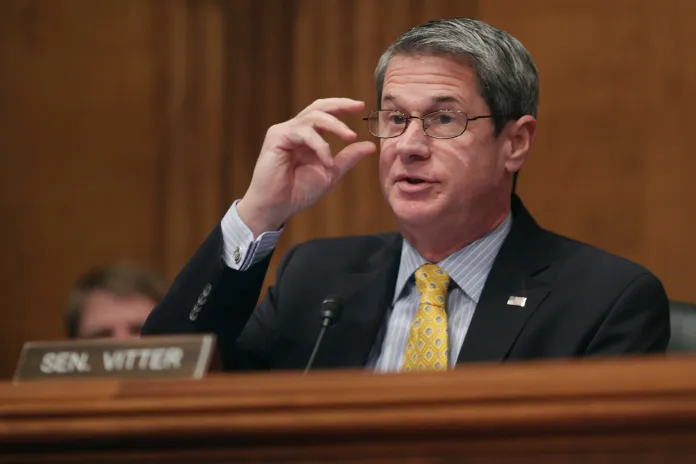Corporations that the Pentagon has designated as “Chinese military companies” have spent roughly $7.9 million influencing U.S. policy this year, with their expenditures roughly doubling each quarter, a Washington Examiner analysis has found.
To be designated as a Chinese military company, the Department of War must determine that a given entity is either controlled by the Chinese military or that it plays a role in the Chinese Communist Party’s “military-civil fusion” strategy by helping the People’s Liberation Army develop technology or serving as a defense contractor. Corporations bearing this designation spent about $1.2 million on lobbying during the first quarter of this year, $2.4 million during the second quarter, and $4.3 million in the third quarter.
That amount of money goes a long way in Washington, and these firms have managed to retain former lawmakers, major political fundraisers, and one-time senior government staffers to plead their respective causes.
Lobbying expenditures from firms linked to the Chinese PLA have intensified as deliberations in Congress have progressed surrounding the National Defense Authorization Act, an annual piece of legislation designed to fund America’s military and deal broadly with national security matters. Many of the issues Chinese military companies are lobbying on concern U.S. national security.
Indeed, the Chinese technology conglomerate Tencent has admitted to paying lobbyists nearly $5 million to influence a number of policies related to national security this year. Among them have been attempts to reverse the decision to include Tencent on the Pentagon’s list of Chinese military companies, which it has called a “mistake,” as well as moves to soften an executive order issued by former President Joe Biden in 2021, which provides a basis for regulating Chinese software to maintain American data privacy.
American policymakers have approached Tencent with increased scrutiny amid reports attesting to its links to the Chinese government.
The firm has, among other things, partnered with the CCP on military-related artificial intelligence research, used its messaging platform to help Chinese authorities arrest religious and political dissidents, been inspected by the chairman of China’s Central Military Commission, and pledged billions to the CCP’s “common prosperity” initiative, which the press has described as a “black box” owing to the lack of transparency in how the funds are being spent. Tencent cofounder and CEO Ma Huateng, meanwhile, served two terms as part of the CCP-controlled National People’s Congress.

Despite Tencent’s well-established links to the Chinese government, high-profile American lobbyists are still lining up to work for the firm. Former Sen. David Vitter (R-LA), for instance, is one member of a three-person team working for Mercury Public Affairs and being paid $200,000 per quarter to vouch for Tencent. Other high-profile lobbyists working to influence policy on behalf of Tencent include a host of former senior Trump administration and campaign aides, one-time senior congressional staffers, and top fundraisers from both sides of the aisle.
“American policymakers should shape policy to benefit Americans,” Hudson Institute senior fellow Michael Sobolik previously told the Washington Examiner. “That’s a boring statement anywhere in America because it’s common-sense, but it’s radical in Washington, in large part because of the malign influence of foreign actors who hijack our policymaking process to benefit America’s enemies … It isn’t acceptable behavior for K Street lobbying firms to take on national security threats as clients.”
“At the very least, they should be registering under the Foreign Agents Registration Act,” Sobolik added. “At most, congressional offices should refuse meetings with these firms as long as they represent CCP-controlled clients.”
Tencent is not the only company that has attracted top-tier talent despite its strong ties to America’s top adversary.
CRRC, a Chinese rail manufacturing corporation that also appears on the Pentagon’s list of Chinese military companies, has retained former Rep. Frank Guinta (R-NH) to lobby on its behalf to fight legislation that would ban federal funds from being used to purchase train cars or other rail components from companies under the influence of China.
Such legislation could be of concern to CRRC, given its well-documented ties to the CCP and the fact that American public transit agencies, its primary U.S. customers, rely heavily on federal assistance. Internal CRRC documents, for instance, include a pledge to implement the CCP’s “military-civil fusion development strategy and expand the application of technology and products.” Press reports also indicate that CRRC has attempted to secure Western trade secrets, supports Beijing’s Belt and Road strategy, and is allegedly linked to forced Uyghur labor.

“Any American who registers to lobby on behalf of a blacklisted Chinese military company should also register as a traitor to the United States,” Michael Lucci, founder of the national security group State Armor, previously told the Washington Examiner. “In fact, Nebraska’s new state law [LB 644] that went into effect on Oct. 1 effectively requires a traitor attestation for lobbyists like Frank Guinta who saddle up with China’s military instead of America’s men and women in uniform.”
CRRC has spent a total of $230,000 on lobbying this year, tapping former top congressional aides alongside Guinta to sway lawmakers.
The remaining $2.7 million spent on lobbying by Chinese military companies in 2025 is attributable to drone manufacturer DJI. DJI faces a multitude of efforts from Congress and regulatory agencies like the Federal Communications Commission to ban its drones from operating in the U.S. due to national security concerns.
Independent researchers have found that the app used to control DJI’s drones collects large quantities of personal data that the Chinese government could access, the New York Times reported. The Treasury and Commerce Departments have also penalized DJI for providing the Chinese government with surveillance drones used to spy on Uyghurs.
DJI has reportedly been ineffective in its efforts to lobby against the ban on its products and the broader NDAA despite some early victories. Bloomberg reported in August that calls and emails from the firm’s lobbyists generally go unanswered. DJI has attempted to gin up organic support for its products, putting funds behind domestic drone advocacy groups in the hopes that it may sway policymakers.
MICROSOFT, POLITICALLY CONNECTED, SEEKS TO ALTER CHINESE INVESTMENT PROVISION IN DEFENSE BILL
Some states have implemented regulations intended to provide greater transparency from lobbyists representing firms linked to America’s adversaries.
In Nebraska, for instance, lobbyists representing such firms are placed on a list and required to make extensive disclosures, similar to those required on FARA. In Texas, meanwhile, statehouse lobbyists are outright banned from accepting payments from corporations linked to foreign adversaries. On the federal level, a bipartisan group of senators introduced legislation in June that would prevent some former government officials from lobbying for such firms.
